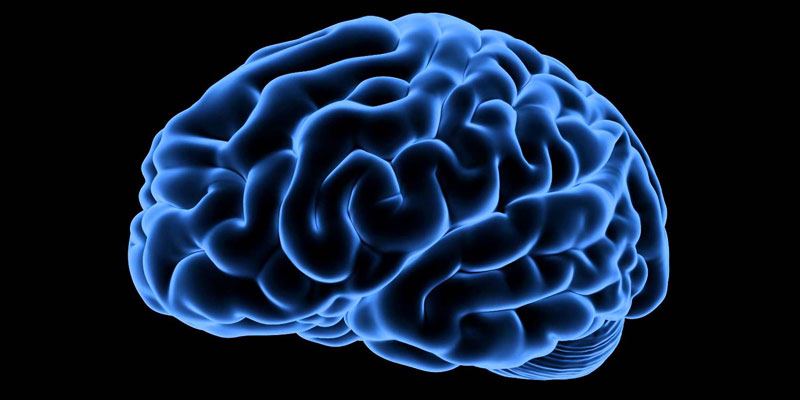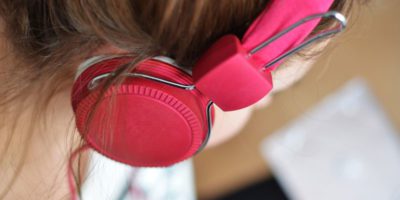Dr. Rachel Moseley is a lecturer in psychology at Bournemouth University. Her research interests centre on autism spectrum conditions (ASC). Within this broad domain, she investigates cognitive processes in people with and without ASC. Rachel has a special interest in language and semantic processing, emotion processing, and social neuroscience.
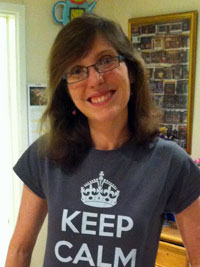
Rachel spoke at the Bristol Soapbox Science event that is taking place on Saturday 16th July 2016. She talked about: “Amazing brains and the autism spectrum.”
Skeletons in the closet – literally!
I’d love to tell you that I sailed through science at school, breezing through the periodic tables, the laws of physics … but I’m afraid I was more often the cringing one in the back row, praying the teacher didn’t call on me! I’m a lecturer, and I think it can be quite reassuring for students to hear that many of us never had an explicit plan to end up in the career that we’ve got.
I was never one of those highly ambitious people who know exactly where they’re going; I had no idea what I wanted to do until my early twenties, and so anyone following my career development would be a bit baffled by its trajectory. Not very scientific or rational at all.
I adore reading and I was a shy child, always hiding my face in a book. My parents are both medical doctors and so I was always asked whether I’d like to be a doctor too. Unfortunately, science scared me a little bit; physics and chemistry were well beyond my comfort zone, and biology was cool, but – blood and guts? I loved the arts side of the syllabus: English, foreign languages, history, religious studies, topics related to people and cultures. The only, faintest hint that I might one day do anything related to science, minds and brains was my fascination with the family skeletons in the closet.
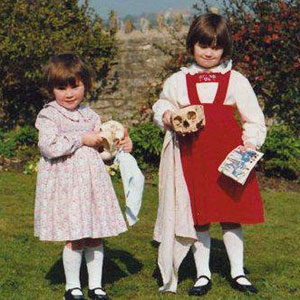
My sister and I named them Boney and Bone; medical students were, back then, given real skeletons to study, and my parents had somehow ended up keeping theirs. As a small child, I loved taking Bone out and carting his skull around in my pram. In those days, I didn’t think about what had once gone on within the skull!
Not medicine – but psychology
It took me until half way through university to find my niche. Psychology, psychiatry and the workings of the brain absolutely fascinated me. This mysterious organ that creates the mind, the personality; wow! How devastating impairments can result from malfunctions at the level of the cell, the communication between brain regions, the chemicals floating around in your head. How the beautiful things that humans create originate inside those folds of tissue. How love and fear and hopes and dreams are born out of that wrinkled, 3lb organ, 86 billion neurons sparking away.
I was a very shy, self-conscious student with low self-esteem, but I had a fantastic lecturer who nurtured my new-born fascination and gave me the confidence to pursue it as a career.
I’d always really loved looking after people and caring for them, but I’d never known how to put it into practice. Now I wondered if I could help people who were suffering from mental disorders. I pursued this half-baked plan of being a clinical psychologist for a while, but then the same kind lecturer gently helped me realise that whilst my anxiety and shyness might make it difficult to excel in the clinical world, my fascination, curiosity and dedication would make me well suited for the academic world.
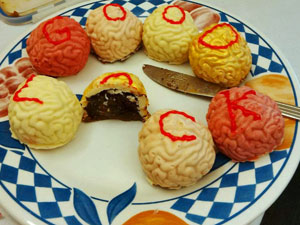
Once I’d found that inspiration, it was onwards from my degree in psychology to a position as a research assistant; then a Ph.D. in cognitive neuroscience at Cambridge; two postdoctoral jobs, teaching on the side, and then my current position as a lecturer and researcher at Bournemouth University. (Rest assured, it sounds very smooth here, but there were a lot of false starts, unsuccessful applications and job interviews along the way!)
I still want to help people, but I’ve found a way to do so using my strengths: by inspiring my students, raising their self-esteem as my lecturer had done for me; and, in my research, by trying to understand, to contribute knowledge to, I hope, make things better for people.
Looking into peoples’ brains to try to understand why they do what they do
Psychology is the study of behaviour, emotions and thoughts. My background actually lies in a closely related field, which is cognitive neuroscience. In this field, we basically try to ground psychological theories in brain function, to understand how biological structures in the brain give rise to language, memory and other thought processes.
I use methods like electroencephalography (EEG) and functional magnetic resonance imaging (fMRI) to peer inside the brain whilst people do tasks … so I can literally see how people tick. I also do behavioural experiments to test predictions from different theories. Additional methods, such as eye-tracking, can reveal mental processes occurring automatically and unconsciously.
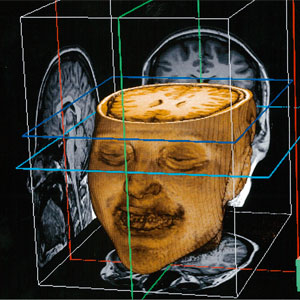
When I’m not conducting research, I’m writing it up to publish it in scientific journals and writing grants so I can get funding for future studies.
Research is one strand of my job; the other is teaching. I have taught psychology and neuropsychology to undergraduates and sixth-form students in the past, and was delighted to get a longer-term job where I could conduct my research whilst keeping up my contact with the scientists of the future. It’s the best of both worlds!
Autism Spectrum Conditions – how people with Autism feel
I find it incredible to understand that all the little things that make you you, your unique qualities, your essence, if you like … that these arise from the cells, chemicals and connections in your brain. Little tweaks or oddities, at any of these levels, give rise to the particulars that make you different from everyone else.
Studying the brains of people with diseases or injuries shows us how just about everything that we take for granted arises from structures and connections in the brain: The ability to talk, remember, plan, reason, understand emotions, communicate with other people, and even our very personalities… I find this topic endlessly fascinating.
My talk will focus on autism spectrum conditions (ASC). I’ll be telling people a little bit about the symptoms, including difficulties with language, understanding emotions, and by repetitive and restrictive behaviour. One of the most obvious signs is difficulty connecting socially and communicating with other people.
Autistic people* sometimes say that they feel that they’re from a different planet, or that they’re speaking a different language to everyone else. I hope to open people’s eyes a bit to what some autistic people experience and to talk a bit about some of the theories that have been devised to understand what causes autism.
When it comes to autism, I have so many questions. How do people with ASC see the world and how do they think differently to people not on the spectrum? What are the differences between girls and boys, males and females with autism? Girls and women with autism are commonly mislooked or misdiagnosed, and I’m really keen to conduct research that might help to address this problem.
And when it comes to the brain … how is it different in autism? How are brain differences linked to the pattern of strengths and weaknesses seen in people with ASC? How and why does the brain develop differently in the first place? The compensatory strategies that people with ASC develop: do they have a basis in the brain, and do they have a psychiatric cost, considering the high rates of mental illness in this group? These questions don’t have conclusive answers yet – but I’ll be talking about what we know so far!
*Note: Many individuals in the online autism community reject the use of person-first language (‘person with autism’) and wish to reclaim their autism as part of their identity by using identify-first language (‘autistic person’). Others, including many professionals, prefer the use of person-first language. I use both here but respect the right of people on the spectrum and their families to use whichever they prefer.
Lifting the curtain on the mysterious brain
I’m very nervous about my Soapbox Science talk as it feels like a big responsibility on several levels; to represent female scientists and encourage prospective scientists-of-the-future, to educate people responsibly, and, big on my mind, to do a good job conveying what autism is. I’m part of a support group for adults on the spectrum, so I’ll be talking to them beforehand to find out what kind of things they want the public to know.
I’m excited to meet anyone who’s interested in psychology, the brain and autism. I want to dispel some common myths about ASC, such as that they’re related in some way to poor parenting and that girls don’t get autism, and more broadly about mental health in order to reduce the stigma that many people face.
I want to lift the curtain on the mysterious brain and how so much of our behaviour and emotions is beyond our control – hoping to foster compassion and kill terrible phrases like ‘just get over it’ or ‘pull yourself together’. I hope that in my talk, learning more about the brain will bring more understanding and compassion for those who think and see the world in slightly different ways.
Rocking the white coats
I was thrilled to see a platform specially designed with female scientists in mind. I think when people think of ‘scientists’, they still have a mental image of a beardy, spectacled dude in a white coat. Whilst I’m sure there are indeed many beardy, spectacled dudes, Soapbox Science sounded like an amazing opportunity to show that we girls can also rock those white coats.
As I have been so inspired by female mentors in the past, I was happy to think that this would be a way to reach girls and women and show them that there are some fantastic scientific careers that they’re just as capable of pursuing.
Gender inequality
Gender inequality in science is endemic, and one of the factors that makes it so difficult to change is so that much lies beneath the surface, not obvious at all. In one lab I worked at, I remember my female colleague commenting how she, I, and other female scientists before us, had sort of automatically picked up the administrative tasks of day-to-day lab running.
That was the same lab where we female scientists were all outrageously hit on by the cleaning staff, and we spoke about the difference in how we were treated in comparison with our male colleagues.
I remember my shock when I heard about the pay gap between male and female researchers, and the sadly pertinent discussion I was privy to regarding job talks; that negotiating for a higher starting salary was perceived positively as confidence in men, and negatively as aggression in women.
Recognising diversity as a plus
Athena SWAN’s diversity charter helps to bring these issues into public awareness, as they’re impossible to address whilst they lie beneath the surface.
With Soapbox Science raising the profile of female scientists and Athena SWAN working to increase the number of women working in STEM, I hope that we can defeat this pervasive culture which suggests that it’s unusual for women to be here.
Athena SWAN has a core principle that everyone has something important to bring to a workplace, and so we are all the poorer if one group, be it women or otherwise, are inadequately represented. I love that they emphasise the need to recognise other types of diversity, such as gender identity, sexual orientation, race, age and indeed disability.
Neurodiversity – the way forward
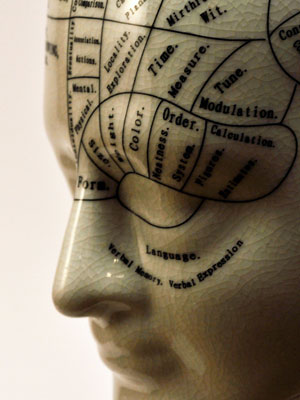
It has never been so clear to see that there are so many different types of brains and they give rise to different strengths and weaknesses. This extra step in valuing diversity sits alongside the values at the heart of Athena SWAN.
Many people with autism have a variety of sometimes exceptional skills that enable them to thrive in many roles but they are often disadvantaged when it comes to getting and keeping a job because of difficulties with social skills and a lack of understanding about the condition among the public. How can we go about raising awareness of these exceptional skills to help those with ASC progress in the workplace?
I feel that whilst raising awareness is important, this in itself isn’t enough if understanding and education isn’t part of it. We now know so much about the body, for example that if our pulse is a little too fast or too slow, it’s related to how our heart is working; if there’s too much or too little sugar in our blood, it’s related to our pancreas.
Unfortunately, there’s this funny dualism when it comes to the behaviour, thoughts and emotions; people don’t understand that there is a biological, brain basis to all of these, which, to an extent, puts them past our control. I hope that by understanding these conditions better and understanding their biological basis, stigma and blame towards those who experience them will gradually decrease and people will feel more acceptance and compassion.
The misunderstandings of autism
There used to be terrible theories blaming autism on ‘refrigerator mothers’. You might think that these beliefs are long gone, but I was dismayed to see a highly publicised BBC drama in which ‘specialists’ propagated dated beliefs about “unresolved traumas” in the family. Not a single word was said about the blameless, biological basis of these conditions in the genes and the brain. I felt that this was irresponsible in 2016 and it was very upsetting for me, thinking of people with autism and their families watching this. So firstly, I would say … education, education, education!
By understanding the biological basis of these conditions, I hope that it will become more difficult to discriminate against people with ASC and indeed mental health conditions generally.
A new ‘quiet hour’ for autistic shoppers
It’s against the law to refuse to employ someone because of a physical difference or disability, and the brain is an organ just like the liver, the kidneys or the heart. If we understand that X makes the brain work a little differently in this way, we can start to make clear accommodations for autistic individuals in education and in the workplace, and I’d like 
I would like to see more dramas and documentaries which recognise that the differences that set people with autism apart can also give rise to unique skills and qualities which can be so usefully employed for society’s benefit.
Autistic people tend to be extremely honest, genuine people, very reliable, less likely to lie and pull a ‘sickie’; many positively enjoy the more fiddly, nit-picky jobs that others might dislike, those tasks which rely on scrutiny of detail and repetition. Some companies are ahead of the game in realising this.
There’s a company called Specialisterne (Danish, meaning ‘The Specialists’) which exists to help employers and ideally-suited autistic employees get in touch. There are autistic people who are, right now, putting their eye to detail to work in very important roles in government and defence. They’re working in banking, business, hospitals, in software development and many other roles; but not enough of them.
I’d like to see companies who employ autistic people rewarded and raised up as an example to other employers. I’d also like to see businesses challenged by the Government to think imaginatively about how they could use skills like these in their workplace. The National Autistic Society has published a brochure, called Untapped Talent, to help.
Making life better for people on and off the spectrum
I’m currently working on a few plans for future research. I’d like to look into the process of diagnosis for adults (particularly women) with autism, who often slip through the cracks, and through this contribute to more successful means of identifying them. I’m also drawing up plans for further studies of the brain, trying to understand the difficulties understanding emotions that people with ASC are thought to experience.
I’m thrilled to be based at Bournemouth University, where I have such great colleagues and collaborators. We’re working on our links with local clinics and services for autistic people and I hope that this will trickle down into our courses, so we can widen the experiences we’re able to offer students. My ultimate goal is to contribute in some way to knowledge that helps make life better for people on (and off!) the spectrum. I hope I’ll get there!
http://staffprofiles.bournemouth.ac.uk/display/rmoseley
https://twitter.com/bournemouthuni
Asda image credit: By Mtaylor848 (Own work) [CC BY-SA 3.0 (http://creativecommons.org/licenses/by-sa/3.0)], via Wikimedia Commons

